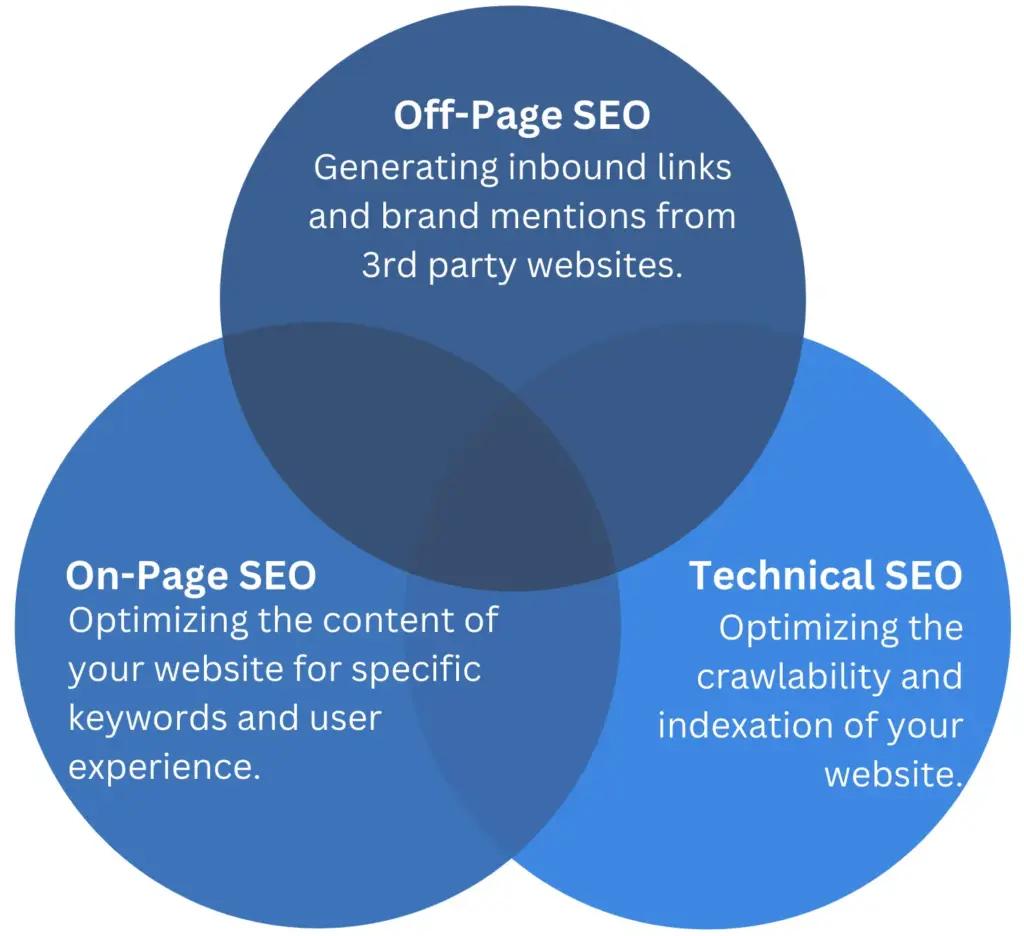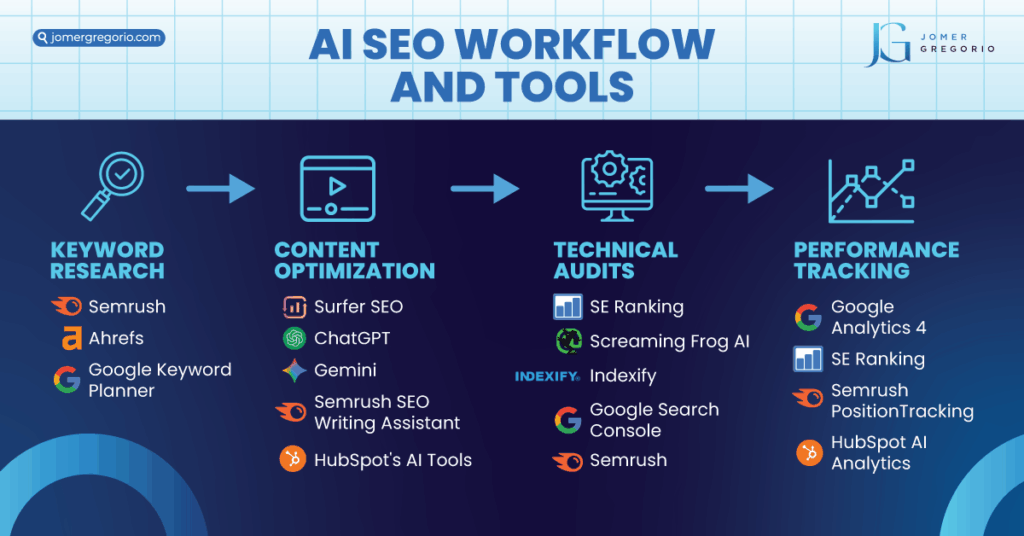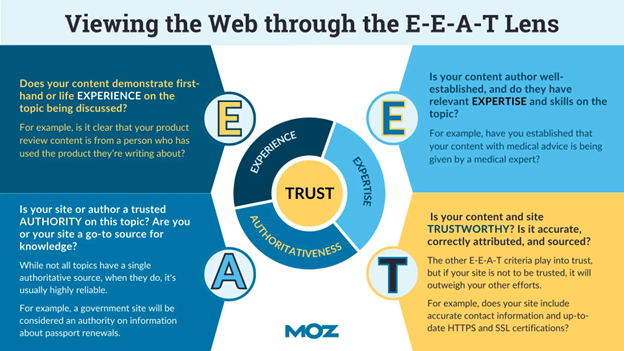Search engine optimization (SEO) has been a reliable strategy for digital visibility. It delivers an average ROI of 825% across industries within three years, with compound returns built through relevant strategies. But in 2025, the landscape looks very different.
Artificial intelligence has become a game-changer in how search engines operate and how marketers approach optimization. While some may question the value of traditional SEO due to this technological innovation, the hybrid approach proves to be more advantageous for SEO work.
What Is Traditional SEO?
Traditional SEO is the foundation of everything an SEO specialist knows about ranking well on search engines. It’s the tried-and-tested approach marketers have relied on for years—a combination of on-page, off-page, and technical strategies designed to help search engines crawl, understand, and rank your content.
At its core, traditional SEO is driven by human experience. Marketers decide which keywords make sense for your audience, you write content that tells a story, and you build relationships that earn backlinks organically.

This image was taken from Search Engine Land.
The foundations of SEO are:
- Technical SEO is the process of optimizing your website’s backend structure, site architecture, speed, mobile usability, and security to ensure search engines can efficiently crawl, index, and rank your content.
- Off-page SEO focuses on building your website’s authority and trust through external efforts like acquiring high-quality backlinks and social media engagement.
- On-page SEO involves optimizing the visible elements on your web page—content quality, keyword usage, meta tags, headings, images, internal linking, and URL structure—to improve relevance and user engagement for targeted search queries.
Traditional SEO works best when it’s consistent and strategic. But it is also labor-intensive—you’re manually gathering data, tracking rankings, and adjusting based on experience.
What Is AI SEO?
AI SEO takes the analytical backbone of traditional SEO and supercharges it with artificial intelligence. Instead of manually handling every optimization task, you can now use machine learning and natural language processing to do the heavy lifting—faster and with more precision.

AI SEO tools can process massive amounts of data in seconds, uncover patterns in user behavior, and even predict where search trends are heading. It is like having a 24/7 assistant that analyses your SEO performance, audits your site, and suggests improvements in real time.
AI SEO covers several areas, including:
- Automating routine tasks such as keyword research, technical audits, and rank tracking.
- Predicting search behavior through data-driven insights on how users are interacting with content.
- Semantic understanding that goes beyond matching keywords to understanding meaning and intent.
- Enhancing site performance with AI-driven fixes and structured data implementation.
- Personalizing content based on user intent, location, and search history.
The power of AI SEO lies in its adaptability. It can respond to search engine updates almost instantly—something traditional SEO can’t always keep up with.
Advantages of Combining AI and Traditional SEO
Automation doesn’t eliminate the need for human judgment; it amplifies it. The human touch ensures that strategy, creativity, and authenticity remain at the core of your digital presence.
- AI for Data-Driven Discovery and Research
When it comes to research, AI is your secret weapon. It scans SERPs, analyzes patterns, and identifies SEO content opportunities that might take a human team days to uncover. You can quickly zero in on high-impact keywords and topics with genuine ranking potential.
But here’s the key: the data is only valuable when you interpret it. That’s your role; you decide which insights align with your business goals, audience, and content pillars. That’s how AI turns from a data machine into a strategic partner.
- Collaborative Content Creation
AI can be your creative assistant in content creation. It can outline topics, pull SEO recommendations, and even help you scale your content calendar. In fact, content creation (43.04%) and brainstorming (26.06%) are among the top uses of AI in digital marketing.
However, you bring the emotion, the storytelling, and the authenticity. You’re the one who gives a voice to your data.
- Automated Technical SEO with Human Quality Control
AI can automate site monitoring and flag technical errors the moment they happen. It’s a game-changer for efficiency. But the decision to implement those changes and ensure they align with UX and brand goals still rests on you and your team.
Automation should support your workflow, not override it. When used right, AI-powered technical SEO saves time and helps you maintain a consistently high-performing website.
Key Considerations When Using AI in SEO
Using AI in SEO introduces new ethical and practical challenges that require careful attention. Before fully integrating AI into the workflow, you need to comprehend the obligations and possible hazards associated with this technology.
- Adherence to Google’s E-E-A-T Principles

This image was taken from Moz.
Even with all its intelligence, AI doesn’t have lived experience or authority; it can’t build trust on its own. You need to ensure all AI-generated insights or outputs align with Google’s Experience, Expertise, Authoritativeness, and Trustworthiness (E-E-A-T) standards. Validate every fact, cite reliable sources, and always bring a human perspective to your content.
- Transparency and Disclosure
If you’re using AI in your SEO processes, be upfront about it. Clients and audiences deserve to know where automation comes into play. Transparency builds confidence and helps set realistic expectations about outcomes, accuracy, and ethics.
- Accountability and Bias Mitigation
AI is only as good as the data it’s trained on. That means biases can creep in, sometimes subtly. You need to regularly audit AI tools, monitor their outputs, and make sure the insights they generate are fair and representative. Accountability isn’t optional when AI influences your marketing decisions.
- Corrections to Inaccuracies in AI-Generated Content
While ChatGPT-4’s hallucination rate lowered to 1.8% in early 2025, compared to the 3.5% in late 2023, AI can still make obvious mistakes. This is why human review is non-negotiable. You need to fact-check AI-generated content, verify statistics, and rewrite sections that don’t align with your brand’s standards or voice.
Ready to Combine AI with Proven SEO Expertise?
AI and traditional SEO work best not as rivals but as partners. The most successful digital marketers in 2025 will be those who master this hybrid approach—using AI to amplify, not replace, human expertise.
If you want to make the most of AI without losing the human touch in your SEO, I’m here to guide you. With over 16 years of digital marketing experience, I can help you refine your strategies and strengthen your brand authority to keep your business ahead of every algorithm update. Contact me today to get started.
References:
https://www.hubspot.com/marketing-statistics
https://www.nature.com/articles/d41586-025-00068-5
https://www.linkedin.com/pulse/why-seo-important-business-growth-2025-pradeep-sharma-ja1if
https://www.searchenginejournal.com/seo-rockstar-names-7-seo-fundamentals-to-win-in-ai-search/545328
